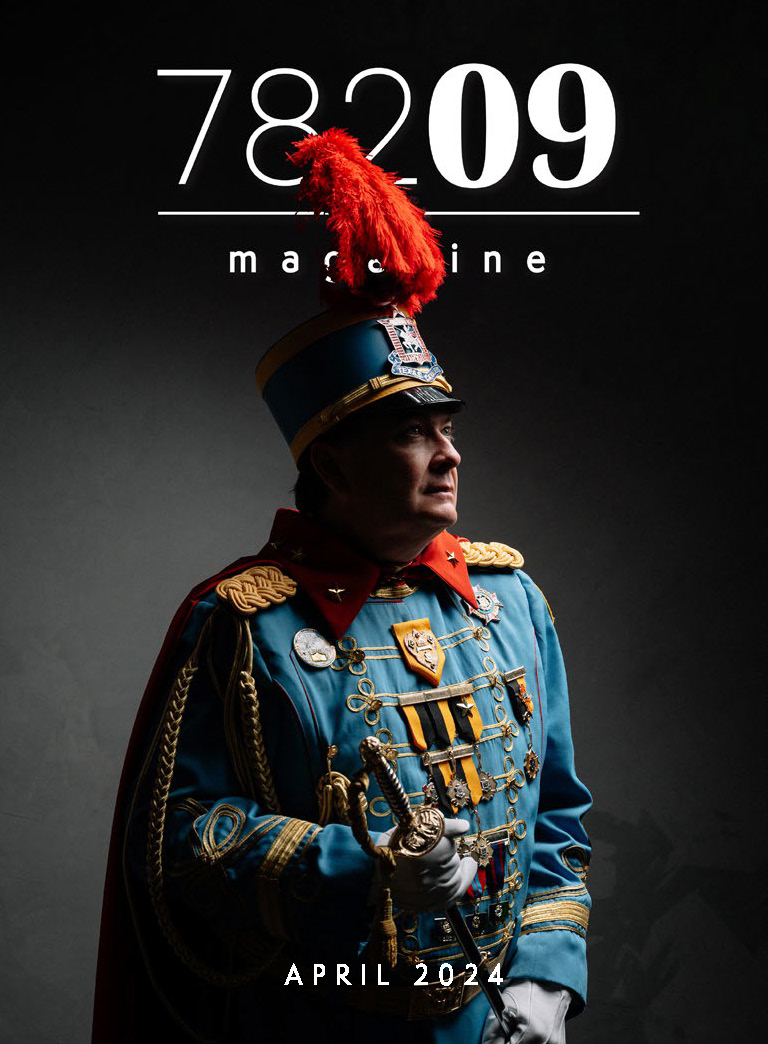Effective Communication for Leaders
Insights into the crucial role of communication in leadership
By Angel L. Santiago | Photography by Suzanne Pack, Celebrated Reflections
“If you can’t communicate effectively, you will not lead.”― Helio Fred Garcia, The Power of Communication: Skills to Build Trust, Inspire Loyalty, and Lead Effectively
How do you define effective communication? According to an article in Coursera.org, effective communication is the process of exchanging ideas, thoughts, opinions, knowledge, and data so that the message is received and understood with clarity and purpose. When we communicate effectively, both the sender and receiver feel satisfied.
I recently had a conversation with Dale Lane, co-owner and co-publisher of 78209 Magazine and San Antonio Woman, to get insights on what leadership means to him. “Good leadership for me is listening,” Dale said. “Being a good listener, being empathetic, and controlling my nervous system so it’s not my body responding, it’s my mind that is empathetic and filled with gratitude.”
As you probably already know, listening is a crucial aspect of effective communication. Experts believe that for effective communication to take place, we have to listen twice as much as we speak. But what is involved in listening? It involves being fully present and aware of the message being conveyed by the sender.
Listening requires:
- Active engagement: Giving the speaker your full attention.
- Empathy: Trying to understand the speaker’s perspective and emotions.
- Avoidance of distractions: Minimizing external and internal distractions.
- Clarifying: Asking questions to ensure understanding.
- Reflecting: Paraphrasing to show understanding and empathy.
- Non-judgmental attitude: Avoiding assumptions and biases.
- Open-mindedness: Being receptive to new ideas and perspectives.
- Acknowledgment: Showing appreciation for the speaker’s message.
Which, if you haven’t noticed, Dale’s definition of leadership emphasizes a lot of these same qualities that anyone interested in becoming a better leader should prioritize and work on developing.
I asked Dale how he nurtured and developed those qualities within himself. He said: “I had to recognize that if I wasn’t mindful of what I wanted to say before I said it – because there was too much emotion, not enough empathy – I couldn’t lead because I didn’t have control of the message, from a strategic standpoint, it was all emotion. Meditation, breathing, and calming my nervous system help me get to a place where I can genuinely listen and respond to what I hear from a purpose-driven perspective, not reacting. Whether it’s with my sales team, production team, my business partner, or our clients, it’s important to get myself in a position where I can have a clear mind and can really listen and respond appropriately.”
Meditation, mindfulness, and breathing are ways to help you regulate your emotions. If there was a skill that I would wish for everyone to learn, it is emotional regulation. According to an article in yourtherapysource.com, emotional regulation is how we deal with stressors. It’s the ability to monitor and manage your energy states, emotions, thoughts, and behaviors in ways that are acceptable and produce positive results such as well-being, loving relationships, and learning. Dale is a testimony of this. “It’s made me a better person. I’m a better friend and a better partner, and I can better serve my clients from a purpose-driven perspective, not from a selfish one, where I’m not trying to get something out of someone. I’m just trying to get everybody in rhythm and going in the same direction. And it doesn’t matter if it’s one of my kids, my business partner/wife, or whoever is in front of me.”
Developing emotional regulation is an ongoing process that involves self-reflection, practice, and the cultivation of emotional intelligence (EQ); skills necessary to become a more connected and empathetic leader who can build trust and rapport with their team. As Dale said, “It’s helped me lead my team in a way that brings out the best in them while on a trajectory to meet established goals.”
Dale hit the nail on the head on that one. A clear vision, a destination, is vital for a leader. It sets the foundation for success. “From the perspective of leading, if you’re leading, you’re going somewhere,” Dale said. “Leading implies there’s movement, direction, and action. So, you can work on yourself and develop yourself all you want and still not be leading. If you’re leading, you have to know where you’re going and who you’re leading.
With that being said, having a clear vision and destination is only the first step. While achieving results is an integral aspect of leadership, it is also important to develop the necessary skills, traits, and behaviors to guide others towards that vision. Leadership effectiveness is not just about achievements, but also about the values and principles that guide your actions. Prioritizing your own well-being as a leader is essential for the overall success of your team and organization.
If you and your team are truly committed to investing in your growth and unlocking your leadership potential, then partner with me to uncover and cultivate the leader that lies within you. Begin your journey toward leadership success today!
Blessings,
#LifeCoachAngel







